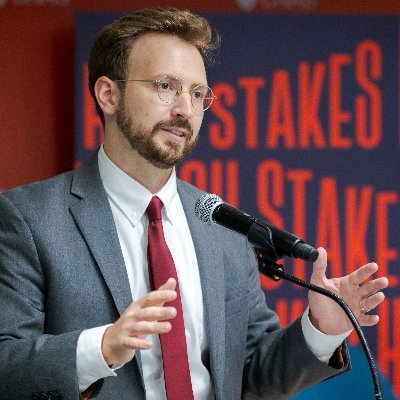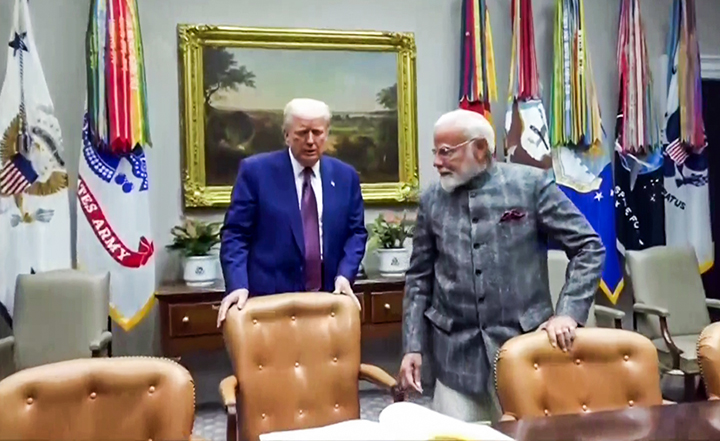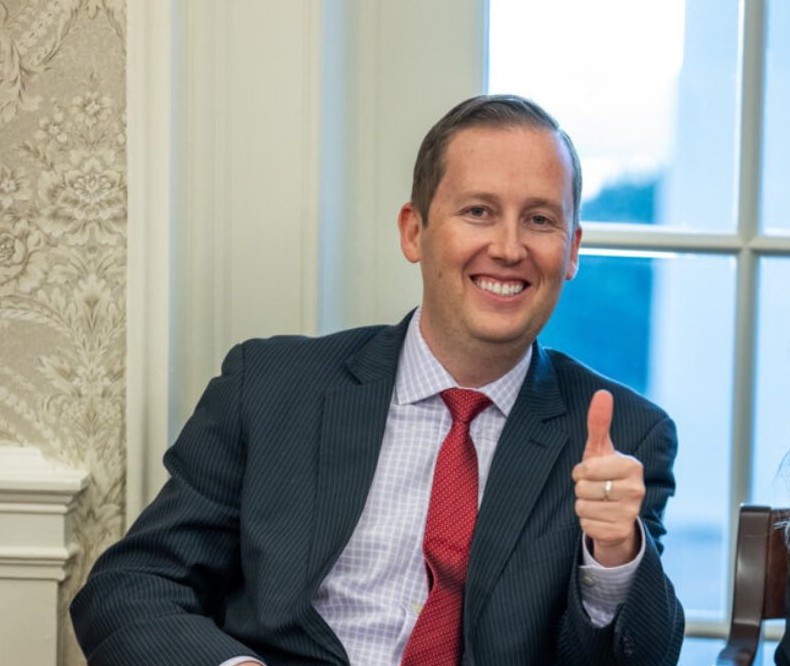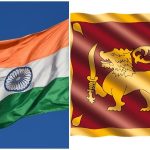Gor, the current Director of the White House Presidential Personnel office, was nominated as the next Ambassador to New Delhi…reports Asian Lite News
Days after US President Donald Trump nominated close aide Sergio Gor as the next ambassador to India, an India-US relations expert said the envoy could serve as a “direct line” to the White House.
Bill Drexel, a Fellow at Washington-based Hudson Institute think tank, highlighted that Gor remains an “unknown quantity” among foreign policy experts.
“On one hand, here’s a guy who’s clearly very, very close to Trump. So, perhaps that and the dual appointment that he is getting, suggests that there’s going to be more of a direct line from India to the White House, which would be a sign of strengthening the relationship. On the other hand, there is this culture of handing out high positions to politically loyal elements of administration, almost as a thank you,” he added.
Gor, the current Director of the White House Presidential Personnel office, was nominated as the next Ambassador to New Delhi and a Special Envoy for South and Central Asian Affairs on Friday, amid growing differences between Washington and New Delhi, majorly over the tariff issues.
Drexel, along with former US ambassador to the United Nations and Governor of South Carolina Nikki Haley, recently authored an article calling for rebuilding of India-US ties to counter China.

“Gor’s closeness to Trump and his dual role suggest India may now have a more direct line to the White House—signalling stronger ties.”– Bill Drexel
Speaking to IANS about the China challenge, he argued that Beijing would “like nothing more than to split the US and India,” as it tries to “capitalise on as much as goodwill” with New Delhi.
“The Chinese Communist Party definitely sees an opportunity right now to try to swoop in and project that it is the more productive partner for India. I don’t expect that those overtures will last or really be convincing.”
Drexel also cautioned that India and China are “natural adversaries” and “the reverse is somewhat true of the United States.”
“The United States and India did not have deadly border skirmishes five years ago. That was India and China,” he noted.
Commenting on the current India-US tensions, Drexel warned that the stalemate could drag on, and would be “catastrophic strategically.”
“I think there is a very real possibility that both sides say, here are the red lines. Neither side is able to bend on those and then they just say – no deal. I think that would be a catastrophe strategically, but I do think it’s possible,” he added.
Starting Wednesday, the US will impose 50 per cent tariffs on Indian exports, including a 25 per cent penalty for purchasing and refining Russian oil. Refusing to bow to pressure, External Affairs Minister (EAM) S Jaishankar pushed back last week, saying, “If you have a problem buying oil or refined products from India, don’t buy it.”
Drexel also expressed concerns about the looming impact of trade tensions on the overall relationship.
“Economics is one dimension. But it’s a very core dimension. And if it goes off the rails, the whole relationship can also easily go off the rails.”

He noted that beyond trade, issues such as the India-Pakistan ceasefire controversy and Washington’s close ties with the Pakistani military were already straining relations.
“I think a lot of these things genuinely are separable and somewhat uncoordinated within the United States government, but the fact that they are all kind of hitting around the same time makes them much harder to disentangle,” he explained.
However, Drexel hoped that a shift could still be in the offing.
“I think with Trump, he has shown over and over again that he is very open to big reversals, that can still be win-win for everyone.”
He continued: “The foundations (of India-US relationship) are actually very firm, and the structure is shaking from the top. I think the alignment of interests is evident to both sides. Strengthening the relationship with India has been one of the most consistent, most bipartisan foreign policy priorities of the last quarter century for the United States. I think we will return to it. It’s a question of when.”














